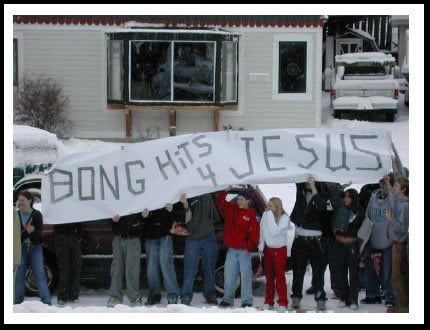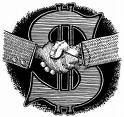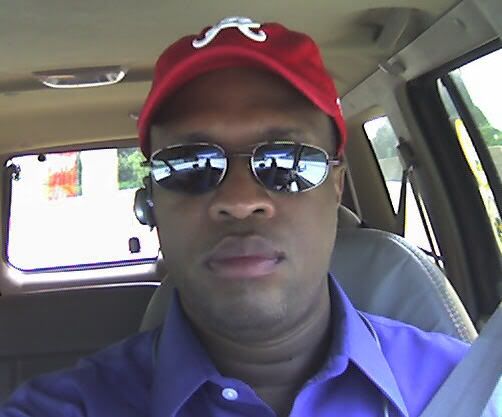 In 1976, Washington, DC passed the following law which banned handguns in the District: "The District of Columbia generally prohibits the possession of handguns. It is a crime to carry an unregistered firearm, and the registration of handguns is prohibited. See D. C. Code §§7–2501.01(12), 7–2502.01(a), 7–2502.02(a)(4) (2001). Wholly apart from that prohibition, no person may carry a handgun without a license, but the chief of police may issue licenses for 1-year periods. See §§22–4504(a), 22–4506. District of Columbia law also requires residents to keep their lawfully owned firearms, such as registered long guns, “unloaded and disassembled
In 1976, Washington, DC passed the following law which banned handguns in the District: "The District of Columbia generally prohibits the possession of handguns. It is a crime to carry an unregistered firearm, and the registration of handguns is prohibited. See D. C. Code §§7–2501.01(12), 7–2502.01(a), 7–2502.02(a)(4) (2001). Wholly apart from that prohibition, no person may carry a handgun without a license, but the chief of police may issue licenses for 1-year periods. See §§22–4504(a), 22–4506. District of Columbia law also requires residents to keep their lawfully owned firearms, such as registered long guns, “unloaded and disassembledor bound by a trigger lock or similar device” unless they are located in a place of business or are being used for lawful recreational activities."
Dick Anthony Heller, a security guard, was recruited to challenge the D.C. law, his lawsuit made its way to this session of the Supreme Court. The Supreme Court struck down the District of Columbia's ban on handgun possession, deciding for the first time in the nation's history that the Second Amendment guarantees an individual's right to own a gun for self-defense.
 Justice Antonin Scalia wrote the Court's opinion and was joined by Chief Justice John G. Roberts Jr. and Justices Anthony M. Kennedy, Clarence Thomas and Samuel A. Alito Jr. The opinion reads in part, "We hold that the District's ban on handgun possession in the home violates the Second Amendment, as does its prohibition against rendering any lawful firearm in the home operable for the purpose of immediate self-defense. [The Second Amendment] surely elevates above all other interests the right of law-abiding, responsible citizens to use arms in defense of hearth and home."
Justice Antonin Scalia wrote the Court's opinion and was joined by Chief Justice John G. Roberts Jr. and Justices Anthony M. Kennedy, Clarence Thomas and Samuel A. Alito Jr. The opinion reads in part, "We hold that the District's ban on handgun possession in the home violates the Second Amendment, as does its prohibition against rendering any lawful firearm in the home operable for the purpose of immediate self-defense. [The Second Amendment] surely elevates above all other interests the right of law-abiding, responsible citizens to use arms in defense of hearth and home."Justice Stephen Breyer writing for the minority said, "[this decision] threatens to throw into doubt the constitutionality of gun laws throughout the United States [and this is a] formidable and potentially dangerous" [mission for the courts to undertake]." He was joined by Justices John Paul Stevens, David H. Souter and Ruth Bader Ginsburg.
Sen. John McCain (AZ), the presumptive Republican presidential nominee quickly put out a statement endorsing the decision, calling it a "landmark victory" for Second Amendment rights. "Today's ruling . . . makes clear that other municipalities like Chicago that have banned handguns have infringed on the constitutional rights of Americans," McCain said.
Sen. Barack Obama (IL), the presumptive Democratic presidential nominee issued a statement saying that "I have always believed that the Second Amendment protects the right of individuals to bear arms, but I also identify with the need for crime-ravaged communities to save their children from the violence that plagues our streets through common-sense, effective safety measures. The Supreme Court has now endorsed that view, and while it ruled that the D.C. gun ban went too far, Justice Scalia himself acknowledged that this right is not absolute and subject to reasonable regulations enacted by local communities to keep their streets safe."
Read and download the entire SCOTUS decision on District of Columbia v. Heller here.
Read the entire Washington Post article on the SCOTUS decision here.
plez sez: it's been said before, "plezWorld doesn't like guns, because they are used to kill people." i don't have any in my house and i try to stay away from people who carry them.
some have taken my stance to think that i don't believe in the second amendment. i concur with the "right to bear arms," but i feel the application and misuse of the second amendment has wrought enough misery on the US over the past 230 years. i'm no jurist, i'm no lawyer, but i can read and it seems pretty obvious that the framers of the constitution were of a mindset when this amendment was published that has little or no relevance during modern times.
first, they had just run off the redcoats with their muskets. they formed local militias to fend fight off the british. the british swept through communities during the revolutionary war and confiscated guns and ammunition. therefore to ward off a strong federal government (if it grew big and powerful enough to behave like king george iii) the james madison (the amendment's author) wrote a provision into the constitution that each State would have a "well regulated" militia with militia men who were able "to bear arms." it seems pretty clear to plezWorld this provision applied to those who were trained as part of a militia group (i.e. the national guard, etc.).
upon reading scalia's opinion, it is obvious that he played loosey goosey with the State and meaning behind "well regulated militia."
historically, these state militias have done more harm to individual rights (see the civil rights movement during the 1940's, 1950's, and 1960's) than any federal intervention (except for the civil war, which by the way was started when a - you got it - a state militia in south carolina fired on the federal government!
Colbert King opines in the Washington Post that the thugs that roam the mean streets of the district have long maintained their second amendment rights in light of the 32 year ban on handguns. excerpts of his opion follow:
There's one group of District residents absolutely unfazed by today's U.S. Supreme Court ruling shooting down the District's strict handgun ban: the dudes who have been blowing away their fellow citizens with abandon since the law was put on the books 32 years ago.
Operating under the notion that it's better to beg forgiveness than to ask permission, our shooters long ago decided not to wait for the high court's thoughts on the matter. They simply arrogated to themselves the right to keep and bear arms and, with that right, license to shoot and kill, with impunity, whatever and whenever the evil spirits moved them.
The record will show that our home-grown shooters have blown through the city's so-called strict handgun ban like John Riggins going up the middle. Over the past 20 years, there have been more than 6,500 homicides in the nation's capital, most committed with firearms, predominantly handguns. In 1976, the year the ban was put in place, the District had 135 gun-related murders, according to CNN. Last year, the number reached 143. Thus far this year, we've had 85 murders.
in 1770's, the arms were muskets and long rifles, arms that were good at close range and could only fire one shot at a time. they didn't imagine semi-automatic guns and revolvers. there needs to be some kind of regulation and rules to limit gun ownership to ensure that any "tom, dick, or dirty harry" can be packing (anyone remember columbine and virginia tech?).
this decision by the court is reckless. i would've much rather seen them require the district to change the unrealistic handgun ban rather than open the floodgates to assaults on gun laws around the country by the emboldened NRA. heaven help us!
















